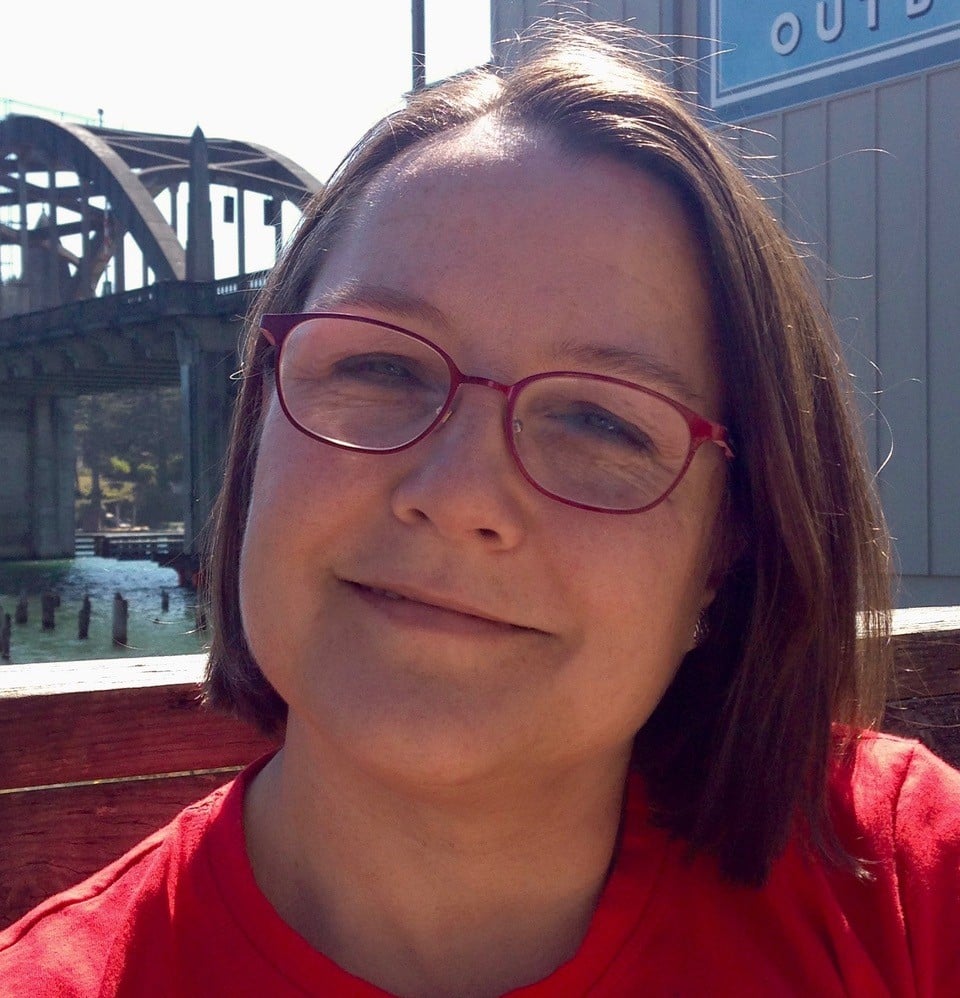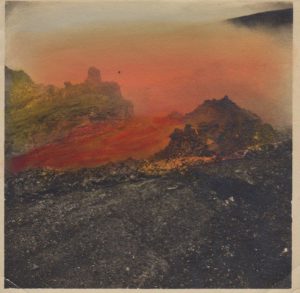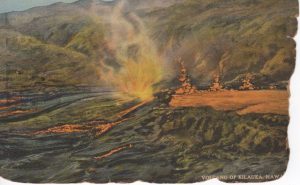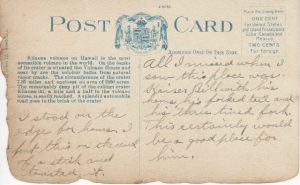A couple of weeks ago, as I was talking with a young woman at the school where I work, she mentioned that she had lived on the Big Island of Hawaii until last year. In fact, her home was in Leilani Estates, where Kilauea volcano is now pumping out fountains of molten lava! I have relatives who currently live on the island (many miles to the north), but the family member I most connect with Kilauea is my great-great-uncle, Oscar McBride: my mother’s father’s mother’s brother.
During the First World War, Uncle Oscar traveled to the Hawaiian Islands. I knew that somewhere I had a postcard toasted by him at Kilauea – toasting postcards over volcanoes evidently being a popular pastime in those days.
After a bit of searching (organizing and making materials more archival along the way), I found not only the postcard I was seeking, but also several other pictures and half a dozen stories Uncle Oscar had written about Hawaii for his local newspaper decades later. Here is one of “McBride’s Meanderings” from The Columbian, published 26 March 1948 in Vancouver, Washington.
Volcano in Hawaii
My first trip to the volcano of Kilauea came near being a tragedy. I met in Hilo a magazine writer from the states. He was going out to write a story for some magazine and invited me to drive out with him, but I had already arranged with three others to drive out the next day, so I declined his invitation. Later in the evening the news came back that he had a wreck and was killed.
The next day the four of us drove out. Before we started we got two pieces of telephone wire about six feet long. We bent three inches of one end over as a handle, and on the other end we made a hook. We took along a loaf of bread and a dozen slices of beef steak half as big as my hand.
The volcano had recently been active and had run out over the edge about 150 feet and about five or six feet deep. It was yet quite warm, but could be walked over. There were many cracks four and five feet down; it was still red hot.
We would take a piece of beef steak and hook it on to the wire and hold it down in until it was roasted. After we had eaten a number of those, we sat down to watch the inferno, boiling and fuming, red hot. I threw in [a] green stick eighteen inches long and one and one-half inch in diameter. It made a blaze such as a match would when thrown into a bed of coals, and disappeared.
Occasionally out in the center there would be an explosion as of a cannon shot. Quantities of that boiling rock would fly fifty feet high. Straight across from where we sat, nearly a quarter of a mile away [a chunk] about fifty feet deep and three or four hundred feet long, broke off at the side, and dropped into that boiling mass.
All along back of it, it was burning and red; when it struck the molten mass forty feet down it caused a wave five or six feet high. It rolled across toward us and disappeared under the edge where we sat. We decided that we had better get out of there, as the same thing might have happened to us. Over to the right about 100 yards away were great white clouds of sulphur smoke floating off toward the southwest. I went around to get a better view.
Suddenly the wind changed and the white clouds came pouring over the edge right where I stood. It overtook me and I was unable to breathe until I dropped on my hands and knees and found enough air to get me out of there.
After that I stayed away from that part. But we did come back with an increased knowledge of the wonders of nature.
Here is the toasted postcard, front and back:
Uncle Oscar's text reads:
“I stood on the edge for hours. I put this on the end of a stick and toasted it. All I missed when I saw this place was Kaiser Bill[1] with his horns, his forked tail and his three tined fork. This certainly would be a good place for him.”
Note
[1] The Emperor of Germany, Kaiser Wilhelm II, at the head of the enemy powers with which the United States had recently gone to war.
Share this:

About Pamela Athearn Filbert
Pamela Athearn Filbert was born in Berkeley, California, but considers herself a “native Oregonian born in exile,” since her maternal great-great-grandparents arrived via the Oregon Trail, and she herself moved to Oregon well before her second birthday. She met her husband (an actual native Oregonian whose parents lived two blocks from hers in Berkeley) in London, England. She holds a B.A. from the University of Oregon, and has worked as a newsletter and book editor in New York City and Salem, Oregon; she was most recently the college and career program coordinator at her local high school.View all posts by Pamela Athearn Filbert →


